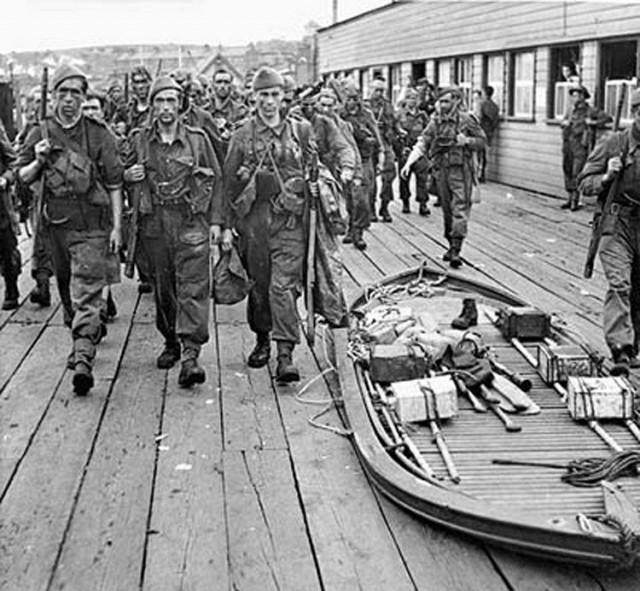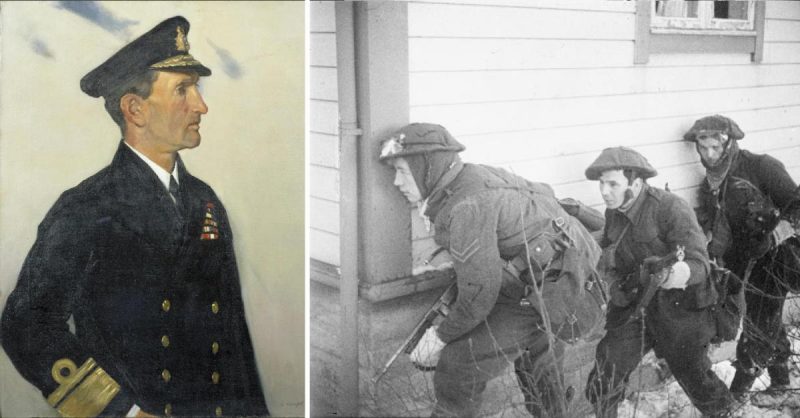When fifteen-year-old Walter Henry Cowan became a Royal Navy trainee in 1884, Great Britain was the dominant naval force in the world. The boy had no idea sixty years later he would get into trouble—but not on a British warship; his troubles would occur on land!
During the latter part of the 19th Century, the British Empire assumed the mantle of global police force and the Royal Navy ruled the seven seas. Promoted to midshipman two years later, Cowan served in many capacities on ships all over the world including a posting on the East India Station flagship “Boaidicea.”
Cowan took part in many of Britain’s fights around the world. He saw action in South Africa, the Nile River, and served as aide de camp to both the famous Lord Kitchener and Lord Roberts. He commanded an entire gunboat flotilla off Eastern Africa when France attempted to overtake British territory. The Distinguished Service Order was given for his actions there.
Before he was aged thirty, he was promoted to Commander and took control of the battleship Prince George. No doubt a tough old salt by then, Cowan was a strict disciplinarian and even risked mutiny on two occasions. Moving from post to post, always upward in rank, he also developed a reputation as a fine destroyer captain. By the time World War I was heating up, Cowan commanded the HMS Princess Royal as flag captain and was a career navy man.
The honors and promotions kept coming, and rear-admiral Sir Cowan became a well known and influential leader in the Royal Navy. In 1919 he received the Knight Commander of the Order of the Bath and was created a baronet. He was now Sir Walter!
After the Great War, he stayed in the Navy and attained even more rank. By 1927 he was granted the title Admiral. Sir Walter’s final appointment prior to retiring in 1931 was as First and Principal Naval Aide-de-Camp to the King of the British Empire. Impressive record.

When Britain found itself in the Second World War, the seventy-year-old navy man couldn’t help but join the war effort. Pulling some strings, he obtained a position with the newly formed British Commandos and went to Scotland to train men on small boat handling. The missions would include carrying out raids against German-occupied territories. But when he was sent with the squad to North Africa, the old man got in a bit of trouble—on LAND.
Having ridden along with the Commandos, Sir Walter found himself with the British-Indian 18th King Edward VII’s Own Cavalry, a regiment with a proud history. Fierce fighting against a German and Italian assault during May and June 1942 in the ruins of a Turkish fort in Libya ended in a slim victory for Field Marshal Rommel after the Allied water supply was damaged by a tank round. Commander Cowan, the seventy-three year old navy salt, fired his revolver until he was out of ammunition and was taken prisoner by the victors. Rommel had orders from Hitler to kill all enemy soldiers regardless of status, even prisoners of war. He burned the telegram from Berlin, having respect for fighting men, and sent the captives away with the Italians.
Imagine! Admiral Sir Walter Cowan held in a POW camp! The retired naval officer’s clean shaven, spit polish appearance would have suffered mightily in captivity. Probably his attitude and demeanor were a challenge for his captors. Less than a year later around 800 Italian prisoners were exchanged for roughly the same number of Allied captives. Strangely, the Italians did not stipulate their prisoners not return to fighting, (apparently there was an honor code which ruled the release of POWs, much like a non-compete contract in business, where they promised not to participate in the war) so Commander Cowan returned to the Commandos and fought in Italy during 1944.
After taking part in countless battles over a period of almost sixty years, Sir Walter Cowan received what he considered the highest honor of his military career. He was invited to India after the close of World War II to receive the appointment of colonel of the 18th King Edward VII’s Own Cavalry. He died on February 14th, 1956 at the age of 84 having led a full and eventful life. He was further honored by having a ship named the “Admiral Cowan” by the Estonian Navy in 2007. This entity was created by the British Navy during the Estonian war of Independence in 1918. Sir Walter was there. The British Commandos are also proud to have this man and his reputation as one of the oldest men to fight in World War II among their members.
